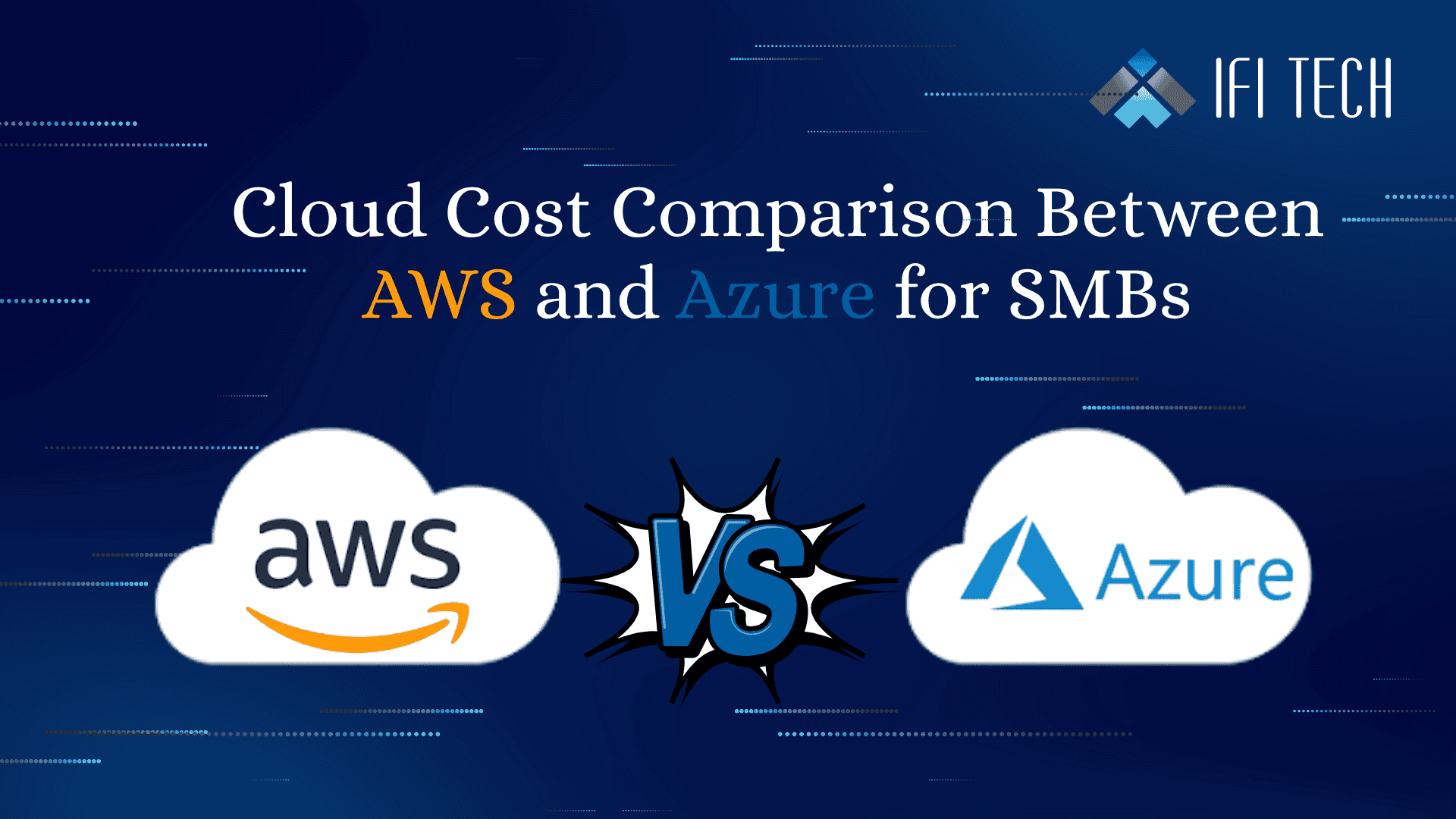Cloud computing is considered to be a crucial element of small and medium-sized businesses. The cloud gives flexibility and scalability to growing businesses for hosting programs, managing data, or enabling remote work. Among the best market options, Microsoft Azure and Amazon Web Services (AWS) are used worldwide. But which one is more cost-effective for a small and medium-sized business?
Here, we will look at a brief cost comparison between Azure and AWS in a simple and practical way. We’ll also explain how a free cloud cost assessment could help your business make an informed choice.
Why Cost Matters for SMBs?
Cloud bills in the thousands of dollars may be common for large businesses. However, for small and medium-sized businesses, cost saving matters a lot. Cloud expenses must be measured against tight budgets, limited IT teams, and the demand for good performance while avoiding overpayment for unnecessary services.
Picking the right cloud provider is more than just assessing who offers the most features. It is crucial to choose the one that matches your workload, scales with business expansion, and doesn’t add extra cost in the future.
Microsoft Azure
Microsoft Azure is often the preferred choice for businesses that use Microsoft tools such as Windows, Office 365, or SQL Server. For SMBs who rely on these technologies, Azure provides better integration and cost benefits, especially if you already pay for Microsoft licenses.
Azure pricing is intended to assist Microsoft’s existing customers. For instance, some systems allow businesses to put their own licenses in the cloud, which usually results in significant cost savings. Moreover, working on Azure’s management interface will be simple for those who are already familiar with Windows environments.
If your firm is currently using the Microsoft ecosystem, your employees will enjoy working on Azure, as it will simplify the usability of the setup and enhance cost-effectiveness.
Amazon Web Services or AWS
Amazon Web Services is widely known for its service catalog, versatility, and global reach. It appeals to startups and small and medium-sized businesses that require advanced cloud solutions, particularly in machine learning, automation, and data analytics.
AWS enables you to select exactly the services you require, and even very specific configurations. This type of specialization can result in savings for cloud-savvy enterprises with regular workloads. However, it may soon become complex, and for teams with little cloud knowledge, this can mean paying for things they don’t utilize or require.
AWS can be a powerful and scalable option with long-term cost savings if your staff is comfortable managing infrastructure or you are collaborating with a professional cloud partner.
Factors for Cloud Cost Comparison Between Microsoft Azure and Amazon Web Services
It is crucial to understand all the factors involved while making a cloud cost comparison between Azure and AWS. The following are the factors for cost comparison between Azure and AWS:
Easy to use and support
Azure generally feels more user-friendly to enterprises that already use Microsoft products. This ease of use might lead to decreased training and setup costs.
AWS could require a longer training period, but it provides more advanced customization choices. Businesses may need to spend more money upfront on setup or hiring cloud professionals, which might increase short-term costs.
Licenses and Discounts
Azure offers licensing incentives to existing Microsoft users, potentially reducing the total cost of ownership. Although license portability may be limited, AWS provides long-term savings programs as well as reserved instances.
Billing Transparency
Both platforms provide cost management solutions. However, many SMBs find Azure’s pricing to be more convenient, particularly when combined with Microsoft 365.
While AWS invoicing is extremely precise, it can become more difficult, particularly when using numerous services across regions. These complexities might cause misunderstanding and unexpected charges if not closely regulated.
Integrate with existing tools.
Azure seamlessly connects with Microsoft services, resulting in fewer compatibility difficulties and less time spent configuring. This results in cost savings.
AWS may be a better fit, as long as you are prepared to handle it if your tools and workflows are already in the Amazon ecosystem or built on open-source platforms.
Making the Right Choice for Your SMB
You will agree that one particular option can not work in all situations. If you have a Microsoft-based firm with basic infrastructure requirements, Azure is likely to be less expensive and easier to implement. If you require extremely flexible solutions, specialist tools, or intend to scale aggressively, AWS may provide the best long-term value.
The best approach to make a smart choice is to get expert advice suited to your individual requirements.
Free Cloud Cost Assessment Offer
We at IFI tech are providing a free cloud cost assessment to help small and medium-sized businesses make informed decisions. This includes:
- A review of your existing IT setup
- Extensive price comparison between Microsoft Azure and AWS for your workloads.
- Personalized tips for lowering cloud expenses
- Guidance on setup, migration, or hybrid cloud models.
Conclusion
While both Azure and AWS provide excellent solutions, the best match for your organization depends on your environment, team, and future ambitions. Focus on which platform best fits your operations, support requirements, and budget, rather than evaluating features one by one.
SMBs can make the most of cloud technology without hurting their budgets by relying on expert assessments and commencing with a clear plan.








